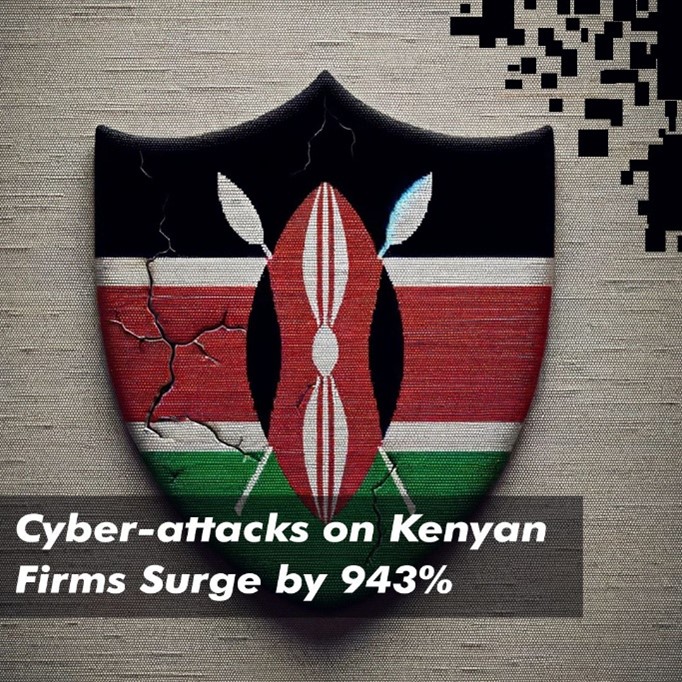New SEC Cybersecurity Rules: What Kenyan Financial Institutions Must Know
July 10, 2025 • Patrick Meki

Introduction
Cybersecurity is no longer merely an IT concern. It is a boardroom imperative and, increasingly, a regulatory requirement. In 2025, the U.S. Securities and Exchange Commission (SEC) finalized sweeping updates to Regulation S-P, imposing stricter data-privacy, incident-response, and third-party oversight obligations on broker-dealers, investment advisers, and fund managers.
While these rules directly apply to U.S. entities, they signal a global trend toward more rigorous cyber-risk governance. Kenyan firms, from commercial banks and microfinance institutions to investment houses and fintechs, would do well to align with these emerging best practices. Kenya’s own Data Protection Act (2019) and recent ODPC guidance on breach notification already mirror many of these expectations.
What has changed under the New SEC Rules?
- Mandatory Incident Response Programs (IRP)
Requirement: Firms must document and maintain a comprehensive IRP covering detection, containment, eradication, recovery, and communication steps.
Kenyan relevance: ODPC recommends similarly detailed breach-response plans; CBK circulars also stress routine testing of business-continuity and disaster-recovery measures. - 30-Day Breach Notification Deadline
Requirement: Notify affected customers within 30 calendar days of discovering a data incident involving “sensitive” information. Kenyan relevance: Under the DPA, data controllers must report breaches “as soon as practicable,” typically within 72 hours to the ODPC and affected data subjects - Enhanced Third-Party Oversight
Requirement: Extend compliance obligations to all service providers; conduct ongoing due diligence, contractually mandate cybersecurity controls, and audit third parties regularly. Kenyan relevance: The ODPC’s regulations on processor obligations and the CBK’s requirements for outsourcing IT services both emphasize vendor-risk management.
Why Kenyan Financial Firms Should Care
- Cross-Border Partnerships: International banks, investors, and correspondents now expect evidence of robust incident-response capabilities and vendor-risk governance.
- Regulatory Alignment: Harmonizing with the SEC’s 30-day breach rule and formal IRP framework simplifies compliance when operating under multiple jurisdictions, including DORA in the EU and the Kenyan DPA.
- Reputation & Trust: Demonstrating adherence to global standards builds customer confidence and reduces the reputational damage of breaches.
Five Practical Steps to Close the Gap
- Develop or Update Your Incident Response Plan
Action: Draft a systematic IRP; include clear roles, escalation criteria, and communication templates for regulators, customers, and media.
Kenyan tip: Align your plan with ODPC breach-notification requirements and integrate CBK-mandated business-continuity protocols. - Map and Classify Customer Data
Action: Perform a data-flow audit to identify where personal and financial information resides, who has access, and how it is secured.
Kenyan tip: Use this exercise to prepare your mandatory data-inventory register under the DPA. - Strengthen Vendor Contracts & Oversight
Action: Insert cybersecurity SLAs, right-to-audit clauses, and breach-notification timelines into all third-party agreements. Schedule annual security reviews.
Kenyan tip: Ensure contracts require processors to comply with Kenyan data-protection laws and CBK outsourcing guidelines. - Leverage Automated Detection & Reporting Tools
Action: Deploy SIEM (Security Information and Event Management) and SOAR (Security Orchestration, Automation & Response) platforms to flag anomalies and streamline incident workflows.
Kenyan tip: Prioritize solutions validated by CBK’s fintech sandbox or recommended by regional regulators. - Conduct Regular Tabletop Exercises
Action: Simulate cyber-attack scenarios with cross-functional teams to test your IRP, communication chains, and decision-making under pressure.
Kenyan tip: Include regulators (ODPC, CBK) and, where possible, key vendors to mirror real-world escalation dynamics.
Conclusion
The SEC’s updated Regulation S-P underscores a universal shift: regulators worldwide demand demonstrable preparedness for cyber incidents, not just written policies. For Kenyan financial institutions, proactively aligning with these stringent standards enhances compliance readiness, strengthens customer trust, and safeguards market access.
Do you need assistance building or testing your incident response program, mapping your data flows, or conducting a gap assessment against global best practices?
Contact South-End Tech today.
? +254 115 867 309 | +254 740 196 519
info@southendtech.co.ke | cybersecurity@southendtech.co.ke